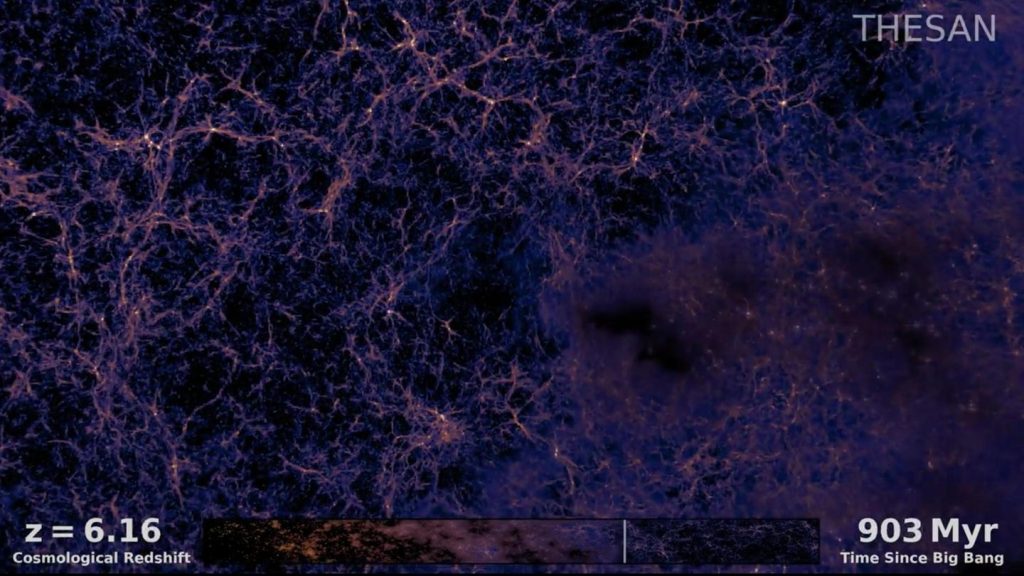Incredible photos from space.
It seems as if a lot of little fireflies are flashing in the dark and the screen gradually lights up.
But there are no insects that can be seen in the recordings.
The researchers created a simulation of the previous universe:
Shortly after the Big Bang, when the universe transformed from a completely dark place to a bright and light-filled environment.
Simulations show the formation and re-ionization of the first galaxies.
In the process of reionization, the neutral hydrogen atoms in space are converted into positively charged atoms.
This allows the light to spread throughout the universe.
This era occurred 13 billion years ago and was not easy to reconstruct.
It involved complex interactions between gravity, gas, radiation, and light.
“Most astronomers do not have laboratories to conduct experiments in. Rahul Kanan, an astrophysicist at the Center for Astrophysics, explains that the scales of space and time are very large, so we can only run experiments on computers.
The simulation shows that the universe is changing from complete darkness to light.
“It’s a bit like water in ice cube trays; if you put it in the freezer, it takes a while, but after a while it starts to freeze around the edges and then slowly creeps up inside,” says study co-author Aaron Smith.
The video is part of a series of simulations created by researchers from the Center for Astrophysics, MIT, and the Max Planck Institute for Astrophysics.
The simulation captures the physics of the ancient universe at a scale millions of times smaller while recreating the details of ancient galaxies.
The research team made this possible by combining a realistic model of galaxy formation with an algorithm that tracks how light interacts with gas.
The simulations were created using one of the world’s largest supercomputers, SuperMUC-NG.

“Total coffee aficionado. Travel buff. Music ninja. Bacon nerd. Beeraholic.”








More Stories
Coral Seeding: Artificial Insemination Makes Coral More Heat Tolerant
Fear, Anger, and Denial: How People Respond to Climate Change – Research
LKH Graz: Using radiation to combat heart arrhythmias